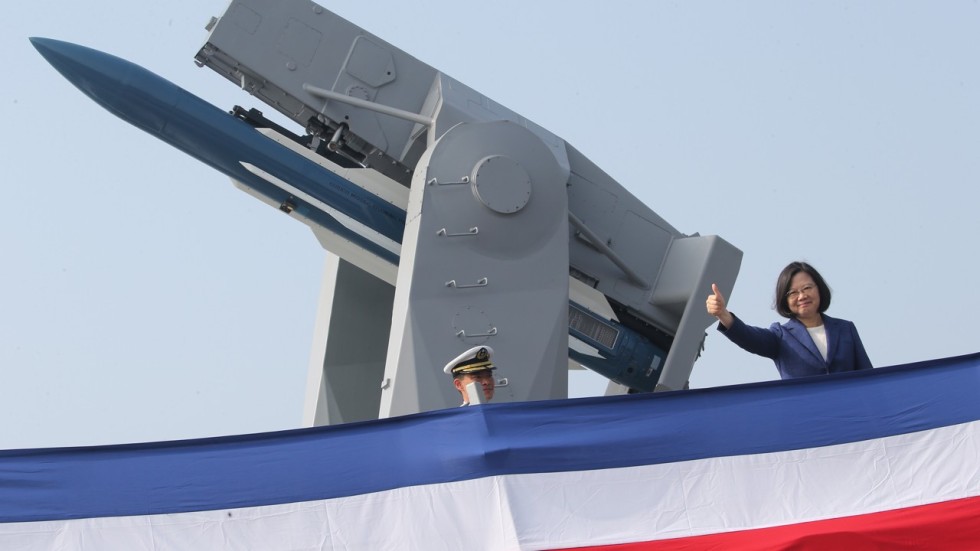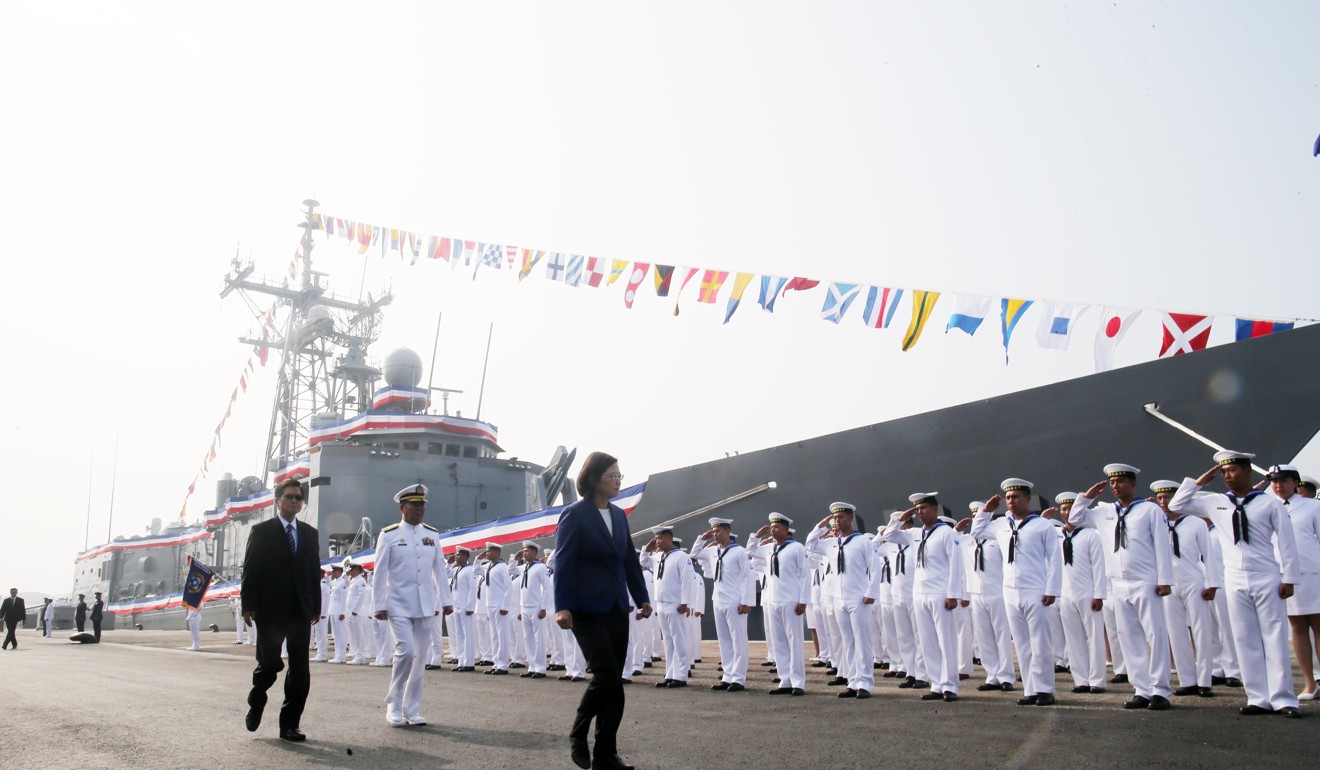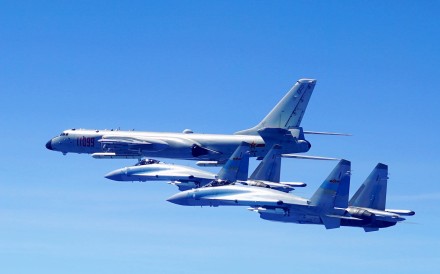begin quote from:
Taiwan ‘will not retreat an inch’ as it commissions US-made frigates
‘We won’t retreat an inch’: Taiwan enlists US-made submarine hunters to repel Beijing threats
- The two guided missile frigates offer superior anti-submarine performance than the island’s existing Chengkung-class frigates
- President Tsai Ing-wen ‘determined to safeguard the Republic of China in Taiwan as well as our free and democratic living style’
PUBLISHED : Thursday, 08 November, 2018, 2:26pm
UPDATED : Thursday, 08 November, 2018, 10:29pm

RELATED TOPICS
Taiwan’s navy has commissioned two former US Perry-class guided missile frigates to boost the self-ruled island’s anti-submarine defences, with the island’s president vowing not to back down in the face of growing military threats from Beijing.
The two frigates, PFG-1112 Ming Chuan and PFG-1115 Feng Chia, commissioned by President Tsai Ing-wen on Thursday, are equipped with the American-made SQR-19 sonar system, giving them a far superior anti-submarine performance than the navy’s existing eight Chengkung-class frigates built by Taiwan, according to naval officers.
The frigates are also equipped with the MK13 guided missile launch system, designed to fire RGM-84 Harpoon Block II missiles as an anti-ship defence – the first such firing system used by any naval vessels and capable of attacking coastal and bayside targets, they said.
“Through the commission of Ming Chuan and Feng Chia, we want to send a clear message to the world … that we are not only devoted to strengthening our armaments but are determined to safeguard the Republic of China in Taiwan as well as our free and democratic way of life,” Tsai, commander-in-chief of the Taiwanese forces, said during a commissioning ceremony at the naval port of Zuoying in Kaohsiung, southern Taiwan.
“We will not retreat an inch,” she said, referring to growing military intimidation from the mainland.
Beijing, which considers Taiwan a wayward province to be reunited with the mainland by force if necessary, has staged a series of war games around Taiwan to step up its military pressure against the island since Tsai, of the independence-leaning Democratic Progressive Party, became president in 2016 and refused to accept the one-China principle.
It has also suspended talks and exchanges with the island and has poached five of Taipei’s allies in the past two years to try to force Tsai to accept that principle, which Beijing considers a prerequisite for the two sides to resume relations. The principle is an understanding that there is only “one China”, but each side has its own interpretation of what constitutes “China”.
Tsai said the commissioning of the two vessels was just another move to uphold the island’s determination to safeguard itself against the mainland’s repeated attempts to weaken the island’s sovereignty and sabotage regional stability and peace.
She said the island would make further efforts to boost its defences at a time when the mainland is using not only military threats but also less conventional means such as spreading disinformation and using social media networks to try to attack her government and the island’s industries.

Built in the 1980s and named USS Taylor and USS Gary when they were in the US Navy, the highly mobile frigates – equipped with the SQQ-89 undersea warfare combat system – were sold to Taiwan for US$190 million in 2015.
According to the Taiwan navy’s chief of staff, Vice-Admiral Lee Chung-hsiao, the ships’ SQR-19 sonar system reduces noise efficiently, enabling more accurate location of enemy submarines.
Delivered to Taiwan in May last year, the two vessels, which have gone through weapons fitting and testing in the past year or so, are among the many military purchases it has made from the United States in line with the Taiwan Relations Act, instituted by the US in 1979 to ensure proper defence for the island after Washington switched diplomatic recognition to Beijing from Taipei.
Despite repeated protests by the mainland, US-Taiwan military ties have become ever closer as Beijing and Washington have become locked in a series of heated disputes over trade and diplomatic issues including the mainland’s military expansion in the Indo-Pacific region.
The American Institute in Taiwan, the US’ de facto embassy, said the US sent representatives to Thursday’s ceremony.
It said the frigates’ entry into service would “improve the island’s capability in current and future defensive efforts” as well as “contribute to political stability, military balance and economic progress in the Indo-Pacific region”, in line with US strategy there.






No comments:
Post a Comment